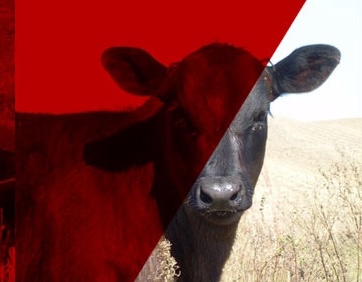Low-quality range pasture and cold wet winter left cows in thinner than normal condition coming into spring this year. The challenges of last summer and winter may have resulted in lower than average pregnancy rates in replacement heifers and young cows this fall, which may be due to the impact the cold and snow had on body condition. Much of the precipitation patterns through the winter continued into the spring and summer creating a challenging 2019 haying season. Widespread heavy rainfall across much of Nebraska made the haying season challenging, and in some areas, nearly impossible. In addition to the challenges the rain created to put hay up, it is likely that the quality of the 2019 hay crop may be less than average. Crude protein and total digestible nutrients (energy) are likely to be less than average because of early plant maturity and hay that may have been harvested with higher moisture content then optimal. Due to this, hay should be sampled and sent off for nutrient analysis. If you have several lots of hay, you can rank your lots based on quality from poorest to best. This will allow you to strategically feed your best hay when the requirements of your cows are the greatest such as late gestation, or early lactation. This can help minimize supplemental feed cost.
In most cases, cows consuming low-quality forages require additional protein. Protein supplements typically have a crude protein content greater than 20% and come in various forms including cubes, meals, pellets, and blocks. Supplementing with a high-quality protein source will increase forage intake and digestibility of the low-quality forage. Protein supplements can be offered to cows daily, three days a week, or as infrequently as once per week with adequate performance. As a rule of thumb, feeding 0.3 to 0.6 pounds of crude protein per day during late gestation to mature cows maintains cow performance and fetal growth.
If cows are thin after weaning or we have a wet, cold winter, a different supplementation strategy may be needed. This fall will be the best opportunity to improve body condition as their requirements will increase as calving approaches making it more difficult to increase body condition. Cows that need to gain weight, or young cows that are still growing may require energy and protein. Byproducts such as distillers grains are fiber-based supplements that are high in crude protein and have high levels of energy. Supplements like cottonseed meal and alfalfa hay may not provide enough energy to increase body condition before calving. Starch-based energy supplements like corn will have to be fed every day and can cause a decrease in forage intake.
When comparing various supplements, it is important to price supplement alternatives on an equal nutrient basis. The “Feed Cost Cow-Q-Lator” offered by Nebraska Extension is a spreadsheet to aid in comparing feed costs.
Because of the challenges faced last spring and this year’s projected lower quality hay crop, supplementing cattle this year with protein will be an effective way to increase intake and digestibility of low-quality forages so cattle performance is not compromised. It is important to have your hay tested and understand the requirements of the cattle you are trying to feed. If there is a lacking nutrient, compare supplement alternatives on an equivalent nutrient (protein or energy) bases to find the most economical source. Identify the composition of your hay, understand the requirements of the cattle you are feeding, and price supplements on an equal basis of nutrients.
If you need assistance with diets or have nutritional questions, Nebraska Extension Educators and Specialists can help, please give us a call.
Interviews with the authors of BeefWatch newsletter articles become available throughout the month of publication and are accessible at https://go.unl.edu/podcast.
Topics covered:
Forages, Grazing systems & best practices, Pasture & range, Nutrition

